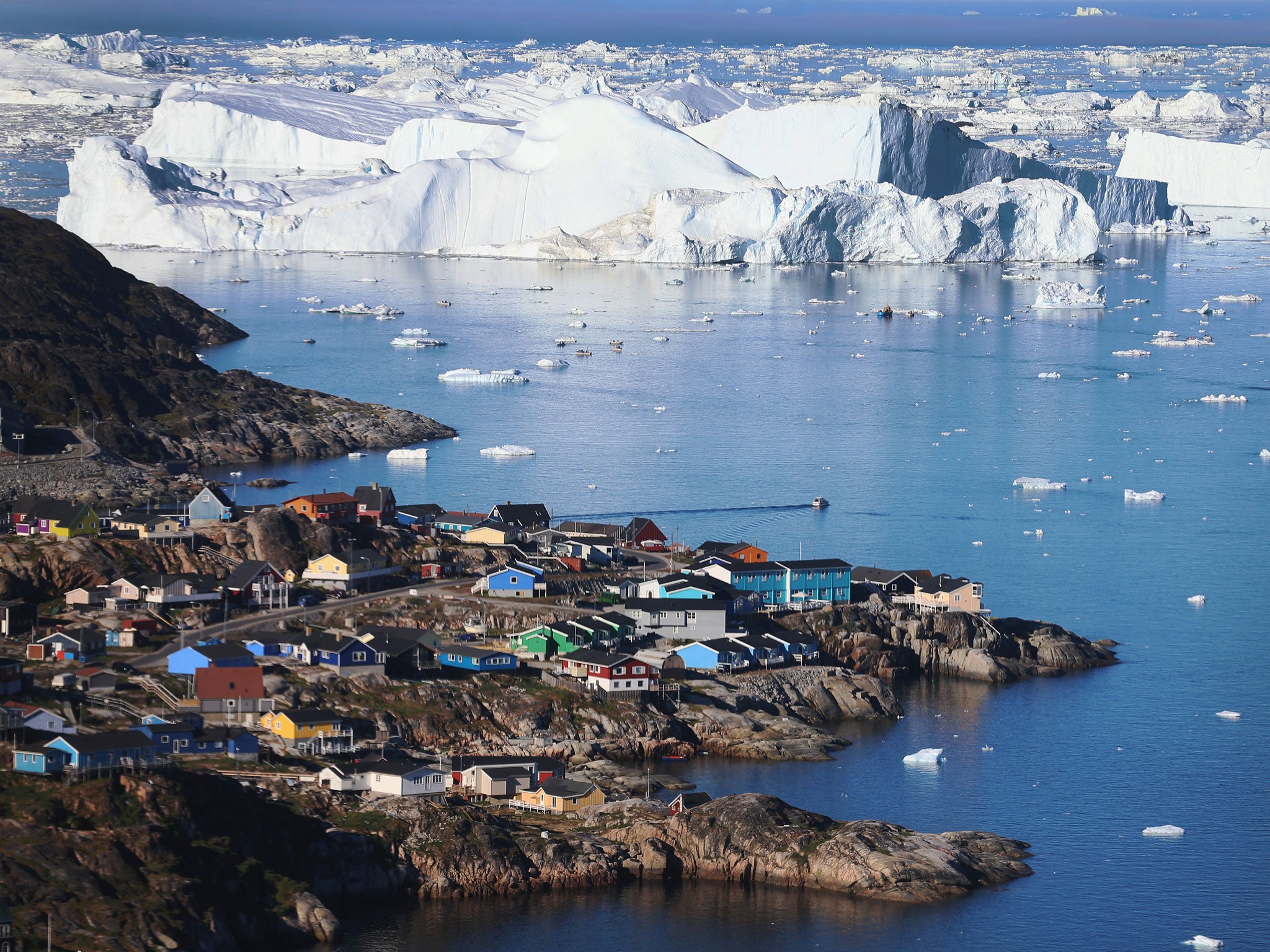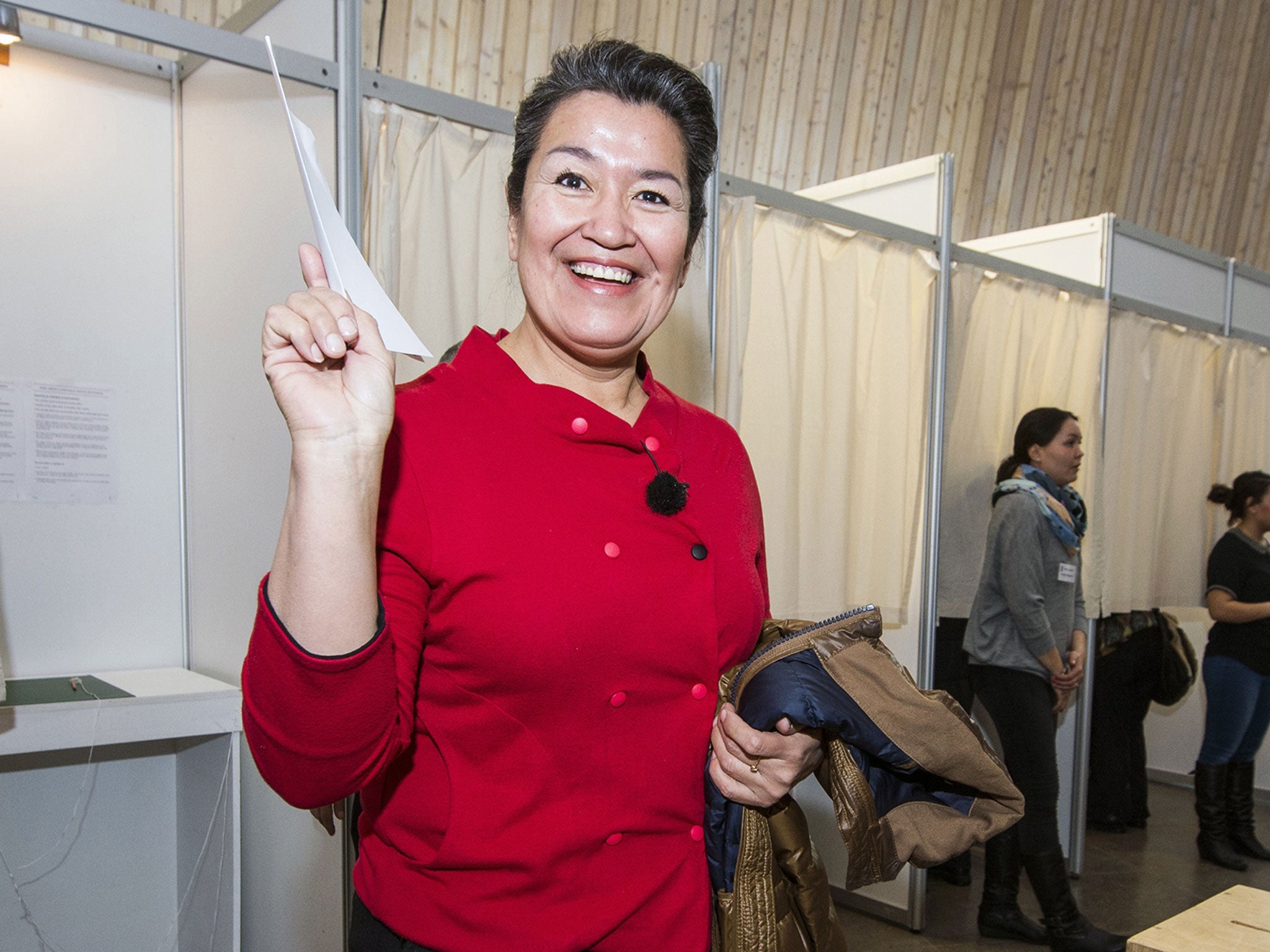Greenland strikes deal with British firm to build giant iron ore mine
Largest commercial project in territory’s history sounds environmental alarms

Your support helps us to tell the story
From reproductive rights to climate change to Big Tech, The Independent is on the ground when the story is developing. Whether it's investigating the financials of Elon Musk's pro-Trump PAC or producing our latest documentary, 'The A Word', which shines a light on the American women fighting for reproductive rights, we know how important it is to parse out the facts from the messaging.
At such a critical moment in US history, we need reporters on the ground. Your donation allows us to keep sending journalists to speak to both sides of the story.
The Independent is trusted by Americans across the entire political spectrum. And unlike many other quality news outlets, we choose not to lock Americans out of our reporting and analysis with paywalls. We believe quality journalism should be available to everyone, paid for by those who can afford it.
Your support makes all the difference.One of the last unspoilt countries on Earth has caved in to economic pressures and struck a ground-breaking deal with a UK-based company to build and run a giant iron ore mine.
Greenland has awarded a 30-year licence to London Mining to build an open-cast mine which, according to a statement on the company’s website, will produce 15 million tonnes a year of “very high-quality iron ore concentrate to the global steel industry”. The ore would be shipped all year round from a dedicated deep-water port.
Jens-Erik Kirkegaard, the country’s Industry and Minerals Minister, called it the largest commercial project in the history of the autonomous Danish territory. “This is indeed a historic moment for Greenland,” he added.
The Greenland government hopes the mine will boost the national economy, which depends largely on a subsidy from Denmark and the traditional Inuit trades of fishing and hunting.
London Mining is expected to seek investment partners for the £1.5bn project, located about 90 miles from the capital, Nuuk.
The project, known as Isua, will be run by 3,000 imported Chinese workers and will largely serve steel mills in Beijing. Greenland itself has a population of about 56,000.
In a report from 2010, London Mining, which has a former British foreign minister, Sir Nicholas Bonsor, on its board, said it had “identified significant economies of scale, and the involvement of Chinese construction groups is anticipated to deliver significant cost savings”.
Greenland’s general election campaign this year was dominated by a debate over the activities of foreign investors and concerns among the indigenous population that Greenland’s future could be dictated by the demands of potentially polluting new industries such as mining and oil. The election was won by the Siumut party, led by Aleqa Hammond.
Environmentalists say they want assurances that the planned open-cast mine will not cause widespread environmental damage. “I really hope that the Greenland government has sold itself at a high price, so that London Mining lives up to far stricter requirements than they originally would have done,” said Gitte Seeberg, the secretary general of WWF Denmark.
She said the Greenland government should insist that the mine be powered by hydroelectric power rather than diesel, and that safeguards should be put in place to deal with the dramatic increase in traffic.
Greenland’s parliament also voted, yesterday, to end a 25-year ban on digging for radioactive materials such as uranium yesterday, further opening the country to investors from mining centres such as Australia and China.
As global warming thaws the Arctic sea ice, Greenland has emerged from isolation, and its untapped mineral wealth has attracted geopolitical attention from the likes of Beijing and Brussels.
Ms Hammond wants to step up the mining of rare earths, valuable elements used in the production of smartphones, weapons systems and other modern technologies. The lifted ban had made such mining difficult because rare earth ores often contain uranium.
Experts estimate that a mine in southern Greenland could contain the largest rare-earth metals deposit outside China, which currently accounts for more than 90 percent of global production.
An Australian company has estimated it could extract up to 40,000 tons of rare earth metals per year.
“We cannot live with unemployment and cost of living increases while our economy is at a standstill. It is therefore necessary that we eliminate zero tolerance towards uranium now,” Ms Hammond said during the debate on lifting the ban, which her administration won by 15-14 votes.
Although Greenland is self-governing, it remains part of the Kingdom of Denmark and the uranium decision may need to be approved by the Danish parliament.
“Concrete actions on the mining and export of uranium will potentially have far-reaching implications for foreign, defence and security policies and are, as such, a matter for the Kingdom,” Denmark’s minister for trade and European affairs, Nick Hækkerup, said in a statement after the vote.
Greenland’s former “zero tolerance” policy on mining radioactive materials is inherited from Denmark.
Since Greenland won self-government in 2009, most politicians have aimed for growing autonomy and eventual independence.
This month, Ms Hammond said Greenland had the potential to become one of the top 10, or even top five, exporters of uranium in the world.
Profile: New female head of state passes law to transform the economy
Greenland has a population of just 57,000 people, but it became a geopolitical battleground in March this year when Aleqa Hammond became Greenland’s first female Prime Minister on a wave of popularity for her pledge to tap the hidden treasure below the country’s ice caps, and to charge mining firms larger royalties for the privilege.

Ms Hammond and her social democratic Siumut Party ousted the ruling socialist Inuit Ataqatigiit Party on the promise that they would lift a ban on the extraction of uranium, making it easier to mine valuable “rare earth” metals, which could have a global impact on the price of electronics, from smartphones to fridges.
As of Thursday, Ms Hammond’s government has made good on that pledge, passing a law that will allow uranium – in which many “rare earth metals” are trapped – to be mined, already attracting the attention of firms from China, Australia and the UK.
It is also a law that marks a major step in Greenland’s intention to increase its autonomy from Denmark. Ms Hammond has said she has “no problem contradicting the Danish government”.
She also says the recent law is not only intended to help pay for the development of the domestic economy, but also to make the world sit up and take notice of Greenland.
Join our commenting forum
Join thought-provoking conversations, follow other Independent readers and see their replies
Comments